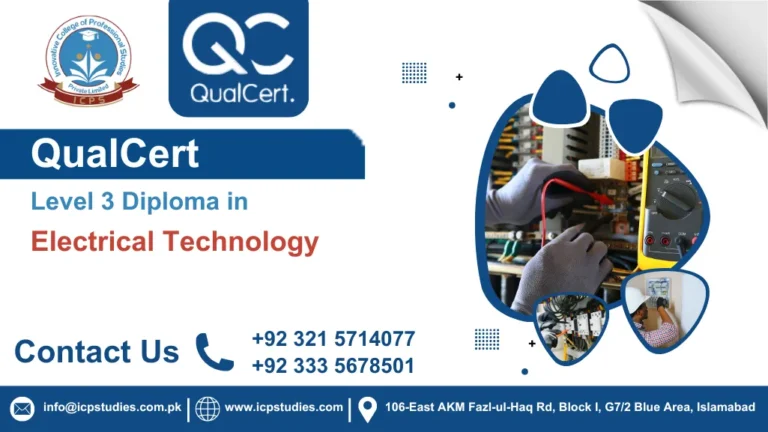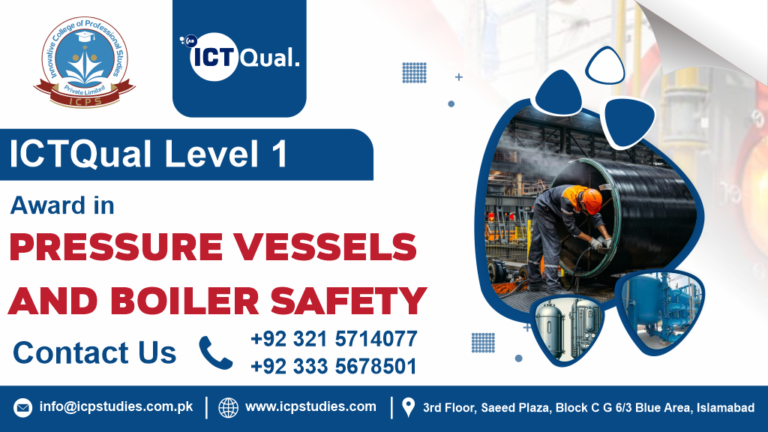The ICTQual Level 3 Diploma in Automotive Engineering (60 Credits) is an advanced qualification designed to provide students with the comprehensive knowledge and technical skills needed to work in the automotive industry. This six-month course is perfect for those who have a foundational understanding of automotive systems and wish to deepen their expertise to pursue more advanced roles within the field. With a focus on both theoretical knowledge and practical application, the diploma equips students to work on modern vehicle systems, diagnose complex issues, and perform advanced repairs.
The ICTQual Level 3 Diploma in Automotive Engineering is designed to provide students with the necessary knowledge and skills to work effectively in a variety of roles in the automotive sector. This six-month course, worth 60 credits, blends in-depth theoretical study with practical, hands-on training, ensuring that students are job-ready by the time they complete the program.
The course covers a wide range of topics, including vehicle electrical systems, engine management, diagnostics, suspension systems, and vehicle servicing. By the end of the program, students will have the expertise to diagnose and repair complex automotive systems, perform advanced vehicle diagnostics, and manage automotive service operations effectively.
The ICTQual Level 3 Diploma in Automotive Engineering (60 Credits) is the perfect qualification for anyone looking to advance their career in the automotive industry. Over six months, you’ll gain in-depth knowledge, hands-on experience, and industry-relevant skills that will set you up for success in various automotive roles. Whether you’re looking to work with advanced engine management systems, hybrid and electric vehicles, or diagnostic tools, this diploma will equip you with the expertise needed to thrive in the modern automotive landscape.
All About ICTQual Level 3 Diploma in Automotive Engineering 60 Credits – Six Months
Course Overview
The ICTQual Level 3 Diploma in Automotive Engineering (60 Credits) is an advanced qualification designed to provide students with a deeper understanding of modern automotive systems and enhance their practical skills. Over six months, this comprehensive course will equip students with the technical expertise required to diagnose, repair, and maintain a wide range of vehicle systems, including advanced engine management, electrical systems, and hybrid/electric vehicles.
Ideal for individuals with a foundational knowledge of automotive engineering, this diploma takes students to the next level by offering both theoretical knowledge and hands-on experience. The curriculum is designed to cover critical areas such as vehicle diagnostics, advanced servicing techniques, and safety protocols, ensuring graduates are fully prepared for careers in the automotive industry.
Whether you’re aiming to become an automotive technician, service manager, or take on a more specialized role, the ICTQual Level 3 Diploma provides the skills and qualifications necessary for success in today’s fast-evolving automotive landscape.
Study Units
- Vehicle Systems and Technology
- Automotive Electrical Systems
- Engine Technology and Diagnostics
- Vehicle Maintenance and Repair
- Automotive Diagnostics and Fault Finding
- Health and Safety in Automotive Engineering
To enroll in the ICTQual Level 3 Diploma in Automotive Engineering, applicants should meet the following entry requirements:
- Basic Knowledge of Automotive Engineering: A solid understanding of fundamental automotive principles is recommended. This can be demonstrated through previous studies, such as a Level 2 qualification in Automotive Engineering, or relevant work experience in the automotive sector.
- Minimum Age: Applicants should be at least 16 years old.
- English Language Proficiency: As the course involves technical content and communication in English, a basic proficiency in English (reading, writing, and comprehension) is necessary.
- Mathematics Skills: Basic mathematics skills, including the ability to work with measurements and calculations, are essential to successfully complete the course.
- Work Experience (Optional): While not mandatory, some practical experience or a background in a relevant field (such as vehicle maintenance or repairs) will be beneficial for understanding course concepts and applying them in practical settings.
- Interest and Commitment: A genuine interest in automotive engineering and a commitment to completing the course is essential for success.
Meeting these entry requirements will ensure that students are well-prepared to fully engage with the course material and gain the most from the program.
The ICTQual Level 3 Diploma in Automotive Engineering (60 Credits) is ideal for:
- Aspiring Automotive Technicians: Individuals who have a basic understanding of automotive engineering and wish to enhance their skills and knowledge to take on more advanced roles in the industry.
- Automotive Enthusiasts: People who are passionate about vehicles and want to turn their interest into a professional career by gaining the technical expertise required to work on modern automotive systems.
- Current Automotive Professionals: Existing professionals in the automotive field who want to specialize in areas such as diagnostics, engine management, hybrid/electric vehicles, or advanced vehicle servicing.
- Career Changers: Individuals from other industries who have a technical background and want to transition into the automotive sector, bringing with them relevant skills while learning more about automotive systems.
- School Leavers: Students who have completed their secondary education and are eager to pursue a rewarding career in the automotive industry by gaining a recognized qualification in automotive engineering.
- Vehicle Service Managers: Professionals who wish to enhance their knowledge of vehicle systems and improve their ability to manage service operations, repair, and diagnostics.
This course is tailored for anyone looking to advance their career in the automotive industry, whether you’re starting out, specializing further, or changing careers entirely.
Learning Outcomes
Unit 1: Vehicle Systems and Technology
- Understand the key components and functions of vehicle systems, including the engine, transmission, steering, suspension, and braking systems.
- Demonstrate the ability to assess and diagnose faults across these systems.
- Apply effective maintenance techniques to ensure the smooth operation of vehicle systems.
- Evaluate the integration and interaction of various systems within a vehicle to ensure overall functionality.
Unit 2: Automotive Electrical Systems
- Identify major automotive electrical components, such as batteries, alternators, and ignition systems.
- Diagnose and repair electrical faults in automotive circuits and systems using appropriate techniques.
- Understand and adhere to safety procedures when working with electrical systems in vehicles.
- Use diagnostic tools to analyze and troubleshoot electrical system issues effectively.
Unit 3: Engine Technology and Diagnostics
- Understand the principles behind internal combustion engine operation and construction.
- Utilize diagnostic equipment and techniques to identify and resolve engine performance issues.
- Perform engine repairs and maintenance tasks efficiently and with precision.
- Assess engine efficiency and recommend solutions to improve performance.
Unit 4: Vehicle Maintenance and Repair
- Perform routine vehicle maintenance tasks, such as oil changes, tire rotations, and brake system inspections.
- Identify common faults in vehicle systems and apply appropriate repair methods.
- Ensure vehicles meet safety and performance standards through regular servicing.
- Recognize the value of preventative maintenance and its role in extending vehicle lifespan.
Unit 5: Automotive Diagnostics and Fault Finding
- Master the use of diagnostic tools to identify and resolve mechanical, electrical, and system-related faults in vehicles.
- Develop strong troubleshooting skills to quickly and accurately resolve complex automotive issues.
- Analyze diagnostic data to determine appropriate corrective actions for vehicle repairs.
- Apply diagnostic techniques to both manual and computerized vehicle systems effectively.
Unit 6: Health and Safety in Automotive Engineering
- Understand the importance of health and safety regulations in automotive workshops and repair environments.
- Follow safety protocols when handling tools, equipment, and hazardous materials.
- Identify potential safety risks and implement preventive measures to avoid accidents and injuries.
- Demonstrate knowledge of proper waste disposal methods and environmental considerations in automotive engineering.
FAQs about ICTQual Level 3 Diploma in Automotive Engineering 60 Credits – Six Months






